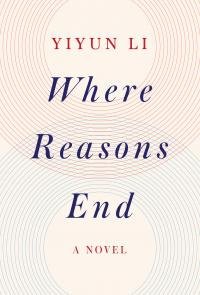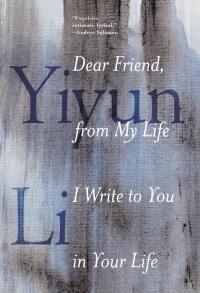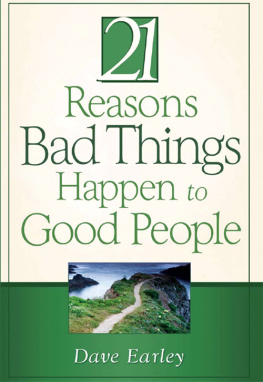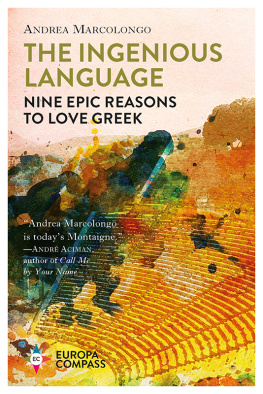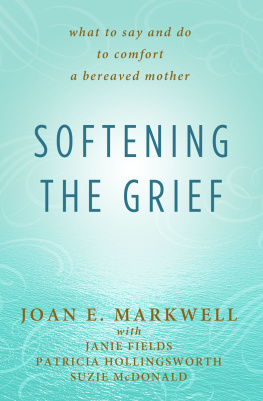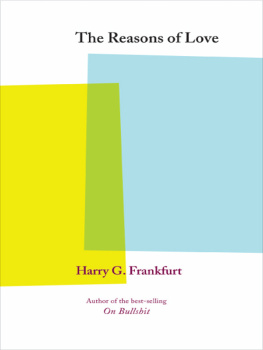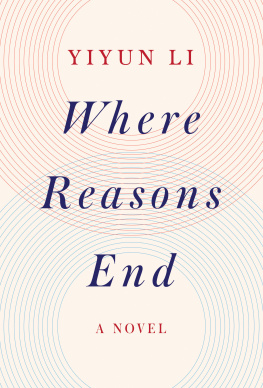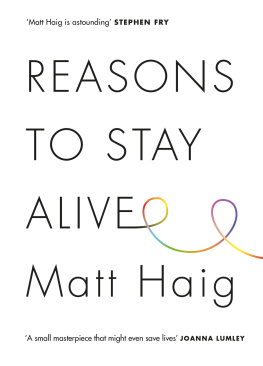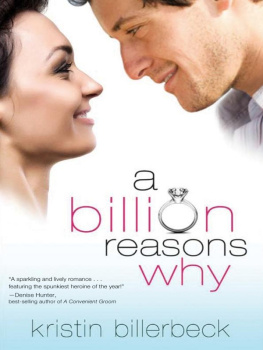Where Reasons End is a work of fiction. Names, characters, places, and incidents are the products of the authors imagination or are used fictitiously. Any resemblance to actual events, locales, or persons, living or dead, is entirely coincidental.
Copyright 2019 by Yiyun Li
All rights reserved.
Published in the United States by Random House, an imprint and division of Penguin Random House LLC, New York.
RANDOM HOUSE and the HOUSE colophon are registered trademarks of Penguin Random House LLC.
Do Not Let Mother Dear Find Us was originally published in A Public Space.
Grateful acknowledgment is made to the following for permission to reprint previously published material:
Farrar, Straus and Giroux: Argument from Poems by Elizabeth Bishop, copyright 2011 by The Alice H. Methfessel Trust; excerpt from Days from The Complete Poems by Philip Larkin, edited by Archie Burnett, copyright 2012 by The Estate of Philip Larkin. Reprinted by permission of Farrar, Straus and Giroux.
Alfred A. Knopf, an imprint of the Knopf Doubleday Publishing Group, a division of Penguin Random House LLC: This Solitude of Cataracts from The Collected Poems of Wallace Stevens by Wallace Stevens, copyright 1954 by Wallace Stevens and copyright renewed 1982 by Holly Stevens. Reprinted by permission of Alfred A. Knopf, an imprint of the Knopf Doubleday Publishing Group, a division of Penguin Random House LLC. All rights reserved.
LIBRARY OF CONGRESS CATALOGING-IN-PUBLICATION DATA
Names: Li, Yiyun, author.
Title: Where reasons end : a novel / Yiyun Li.
Description: New York : Random House, [2019]
Identifiers: LCCN 2018013429| ISBN 9781984817372 (hardback) | ISBN 9781984817389 (ebook)
Classification: LCC PS3612.I16 W48 2019 | DDC 813/.6dc23
LC record available at https://lccn.loc.gov/2018013429
Ebook ISBN9781984817389
randomhousebooks.com
Book design by Victoria Wong, adapted for ebook
Cover design: Rachel Ake
v5.4
ep
Contents
Cover
Title Page
Copyright
Epigraph
Chapter 1: Do Not Let Mother Dear Find Us
Chapter 2: Waylaid by Days
Chapter 3: The Trespassers
Chapter 4: Then the Button Came Undone
Chapter 5: Catchers in the Rain
Chapter 6: What a Fine Autumn
Chapter 7: So Many Windows, So Many Flowers
Chapter 8: The Perfect Enemy
Chapter 9: Forever
Chapter 10: Waylaid by Facts
Chapter 11: Wishing You Were Somehow Here Again
Chapter 12: Inertia
Chapter 13: Aftertime
Chapter 14: Consolation
Chapter 15: Never Twice
Chapter 16: Answers Do Not Fly Around
Dedication
By Yiyun LI
About the Author
Days that cannot bring you near
or will not,
Distance trying to appear
something more than obstinate,
argue argue argue with me
endlessly
neither proving you less wanted nor less dear.
Distance: Remember all that land
beneath the plane;
that coastline
of dim beaches deep in sand
stretching indistinguishably
all the way,
all the way to where my reasons end?
Days: And think
of all those cluttered instruments,
one to a fact,
canceling each others experience;
how they were
like some hideous calendar
Compliments of Never & Forever, Inc.
The intimidating sound
of these voices
we must separately find
can and shall be vanquished:
Days and Distance disarrayed again
and gone
both for good and from the gentle battleground.
Elizabeth Bishop, Argument
1
Do Not Let Mother Dear Find Us
Mother dear, Nikolai said.
I was surprised. He used to only call me that when I wasnt paying attention. But here I was, holding on to my attentiveness because that was all I could do for him now. Ive never told you how much I loved you calling me that, I said.
What did you call Grandma?
When I was your age? Mamita, I said.
That was endearing, he said.
You have to get the name right when you find the person hard to endear, I said. Endear, I thought, what an odd word. Endear. Endure. En-dear. In-dear. Can you out-dear someone?
And fancy seeing you here, Nikolai said.
One of us made this happen, I said.
I blame you.
I laughed. Ever so like you, I said. I then explained the liberty I had taken to get myself here. For one thing, I had made time irrelevant.
I could be sixteen like you are, I said, or twenty-two, or thirty-seven, or forty-four.
I would rather you are not sixteen, he said.
Why not?
I dont want to feel the obligation to befriend you.
We can still be friends even if I am of another age.
I dont like making friends with older people. Besides, one cant really be friends with ones mother.
Can one not?
No. The essence of growing up is to play hide-and-seek with ones mother successfully, Nikolai said.
All children win, I said. Mothers are bad at seeking.
You did find me.
Not as your mother, I said. Dont you notice the sign there (though I knew he couldnt haveI had hung it up while talking with him): Do not let mother dear find us.
What are you then?
Oh, a runaway bunny like you. How else did we end up here?
Here, as I watched my neighbor leave, a box of fresh-baked chocolate cookies in my hands, was a place called nowhere. The rule is, somewhere tomorrow and somewhere yesterdaybut never somewhere today.
I was neither the White Queen, who sets the rule, nor Alice, who declines to live by the rule. I was a generic parent grieving a generic child lost to an inexplicable tragedy. Already there were three clichs. I could wage my personal war against each one of them. Grieve: from Latin gravare, to burden, and gravis, grave, heavy. What kind of mother would consider it a burden to live in the vacancy left behind by a child? Explicate: from Latin ex (out) + plicare (fold), to unfold. But calling Nikolais action inexplicable was like calling a migrant bird ending on a new continent lost. Who can say the vagrant doesnt have a reason to change the course of its flight? Nothing inexplicable for meonly I didnt want to explain: A mothers job is to enfold, not to unfold.
Tragedy: Now that is an inexplicable word. What was a goat song, after all, which is what tragedy seemed to mean originally?
Would you call it a tragedy yourself? I asked Nikolai. In the interim between talking with my neighbor and returning to this page, I realized the world might think I was becoming unhinged.
I was not. What I was doing was what I had always been doing: writing stories. In this one the child Nikolai (which was not his real name, but a name he had given himself, among many other names he had used) and his mother dear meet in a world unspecified in time and space. It was not a world of gods or spirits. And it was not a world dreamed up by me; even my dreams were mundane and landlocked in reality. It was a world made up by words, and words only. No images, no sounds.
Would you call it a tragedy? he said.
I would only say its sad. Its so sad I have no other adjectives left.
Adjectives are my guilty pleasure, he said.
I know. You may have to supply me some, I said. Which one word, I wondered, would he come up with to describe my nowhere-ness? Then it occurred to me that he wouldnt give me a word. No matter how much liberty I had taken in this world, I could not change the fact that I had made this meeting take place. It wasnt his choice so he was limited by my ability. I had no words but sadness.
Do you want me to feel sad for myself, too? Nikolai said.
Next page
